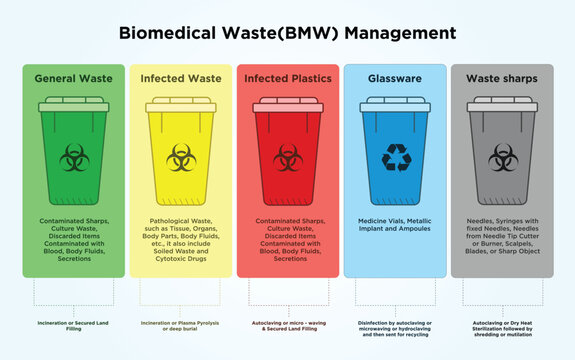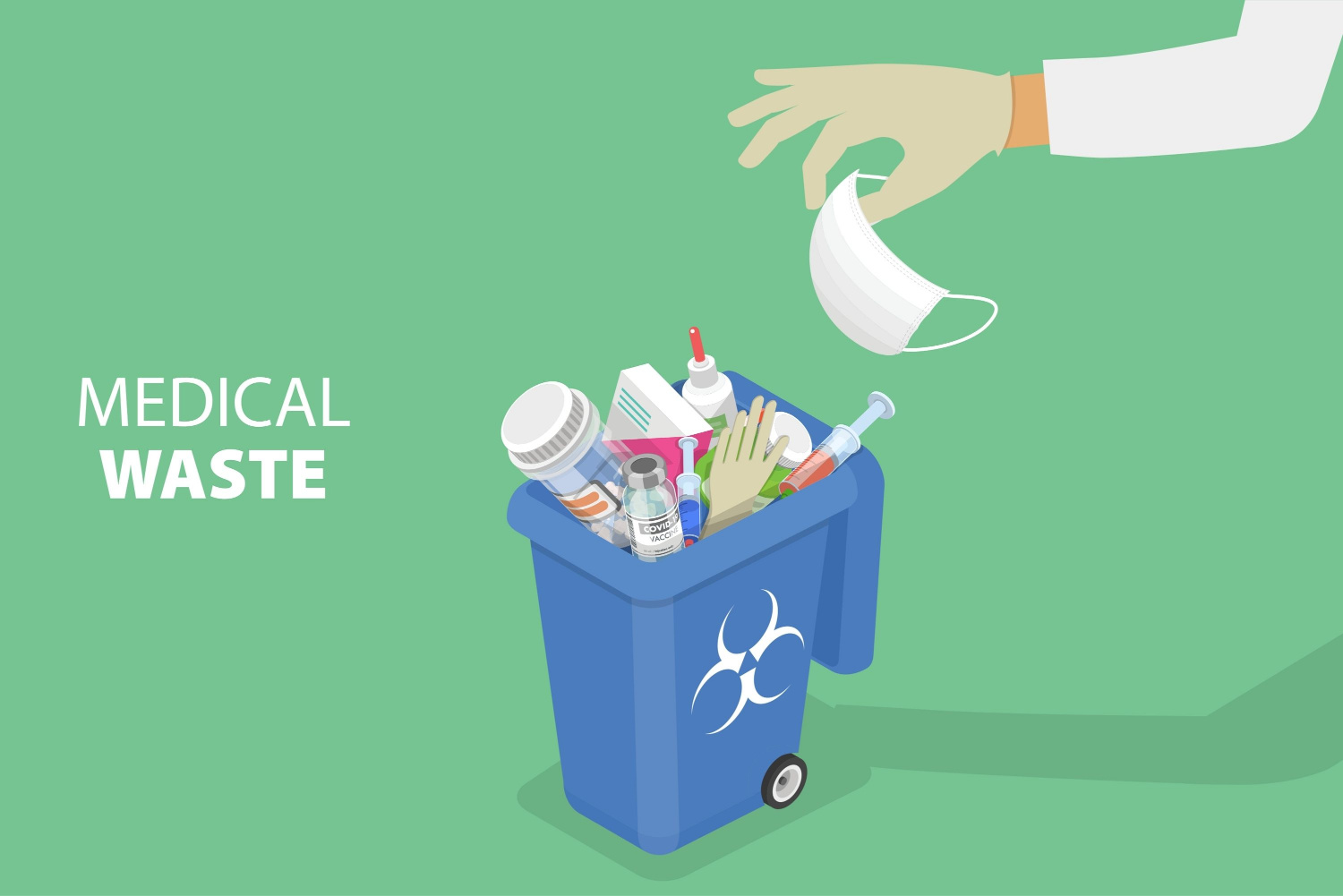Guaranteeing Safe Handling and Disposal of Medical Waste
Making sure risk-free handling and disposal of medical waste is of vital importance in health care setups. Inappropriate monitoring of clinical waste can position significant risks to the setting, public health, and health care workers. In this introduction, we will certainly check out the relevance of appropriate medical waste administration, the threats connected with inappropriate handling and disposal, as well as the guidelines and approaches that can be implemented to ensure its safe disposal.
Relevance of Correct Medical Waste Administration
Appropriate clinical waste monitoring is of utmost value in ensuring the safety and well-being of healthcare specialists, clients, and the public. Medical waste refers to any waste generated by healthcare facilities during the medical diagnosis, therapy, or immunization of humans or pets. This waste can pose major health threats otherwise managed and taken care of effectively.
Among the main reasons why proper clinical waste monitoring is crucial is to avoid the spread of contagious diseases. Medical waste, such as utilized needles, polluted dressings, and biological products, can lug unsafe pathogens. Otherwise taken care of and disposed of appropriately, these microorganisms can be sent to medical care workers, people, waste trainers, and also the public, resulting in the potential episode of illness.
Additionally, correct clinical waste monitoring helps protect the atmosphere - medical waste disposal. Clinical waste has harmful materials, including chemicals, drugs, and contaminated substances. When not handled appropriately, these substances can infect dirt, water bodies, and the air, posturing a considerable danger to ecosystems and public health
Moreover, efficient medical waste administration makes sure conformity with neighborhood laws and global standards. Federal governments and regulatory bodies have actually developed protocols and guidelines to make certain the risk-free handling, storage space, transportation, and disposal of medical waste. Abiding by these regulations is important to stay clear of legal consequences and keep the reputation and reliability of health care centers.
Threats of Improper Handling and Disposal

If clinical waste is not properly disposed of,Clients can additionally be subjected to these contagious illness. If polluted needles or various other sharps are not disposed of in assigned puncture-proof containers, they may inadvertently prick clients, leading to prospective infections. If medical waste is not set apart properly, there is a danger of cross-contamination between different kinds of waste, more increasing the possibilities of disease transmission.
Improper disposal of medical waste can also have detrimental impacts on the environment and the public. If clinical waste is not dealt with and taken care of appropriately, it can pollute water resources, dirt, and air, bring about the spread of illness and toxins. This can have long-term effects on communities and public health and wellness.
Standards for Safe Handling of Medical Waste
Applying effective protocols for the risk-free handling of clinical waste is crucial in ensuring the security of healthcare experts, individuals, and the public. These standards are important in minimizing the risks connected with the handling and disposal of medical waste, such as infections, injuries, and ecological pollution.
Primarily, medical care centers have to develop a thorough waste monitoring strategy that abides by regional, national, and worldwide laws. This plan should consist of clear guidelines on waste segregation, packaging, labeling, transport, and storage. It is important to divide different kinds of waste, such as sharps, infectious products, drugs, and non-hazardous waste, to stop cross-contamination and advertise safe disposal.
In addition, medical care employees must receive detailed training on appropriate waste handling strategies. They must be educated on the prospective risks of clinical waste, the ideal use individual safety devices (PPE), and the correct treatments for taking care of, transporting, and getting rid of different sorts of waste.
Moreover, medical care centers ought to frequently keep an eye on and investigate their waste administration methods to make sure compliance with guidelines. This includes conducting routine inspections, evaluating waste handling procedures, and offering feedback and training to personnel.
Reliable Strategies for Waste Disposal
To ensure the safe handling and disposal of medical waste, it is important to use efficient methods for garbage disposal. Medical waste can present considerable dangers to public health and wellness and the setting otherwise managed and gotten rid of properly. Healthcare facilities and waste management organizations have to implement appropriate techniques to minimize these risks.
It includes dividing different types of clinical waste based on their characteristics. Healthcare centers ought to provide clear guidelines and training to staff participants on how to set apart waste appropriately.

In addition, health care centers need to collaborate with licensed waste monitoring companies to guarantee proper disposal of clinical waste. These business have the competence and tools called for to safely get rid of and take care of of clinical waste in conformity with laws and ideal techniques.
Training and Education for Healthcare Professionals
Medical care specialists play a vital function in making sure the secure handling and disposal of medical waste with comprehensive training and education. It is necessary for doctor to have a deep understanding of the potential dangers related to clinical waste and the correct protocols for its management. By obtaining proper training, healthcare experts can minimize the possible transmission of transmittable conditions, protect against environmental contamination, and protect both themselves and the public.

Additionally, training programs must emphasize making use of individual protective devices (PPE) and proper hand health techniques when taking care of medical waste. medical waste disposal. Health care experts ought to know how to properly get rid of and use of PPE to safeguard themselves from prospective exposure to harmful products. They ought to additionally be educated on the relevance of routine handwashing and the proper usage of hand sanitizers to lessen the spread of infectious illness
Continuing education and learning and regular updates on medical waste management practices are critical for healthcare specialists. As guidelines and policies develop, it is necessary to keep health care companies informed regarding any type of modifications in methods and best techniques. This will make sure that they stay updated and maintain a high criterion of safety and security in getting rid of and handling of clinical waste.
Conclusion
Finally, correct handling and disposal of medical waste is critical to make sure the security of medical care experts, individuals, and the environment. Disregarding to adhere to guidelines and laws can lead to different dangers and risks. Applying efficient strategies for waste disposal and supplying ideal training and education and learning for health care specialists are essential in keeping a secure healthcare setting. By sticking to these methods, we can mitigate the potential dangers related to medical waste.
Clinical waste refers to any waste created by health care centers throughout the diagnosis, therapy, or booster shot of people WasteX Medical Waste Disposal or pets. If medical waste is not segregated appropriately, there is a danger of cross-contamination in between different kinds of waste, additional enhancing the chances of illness transmission.
It is important to separate various types of waste, such as sharps, contagious materials, drugs, and non-hazardous waste, to prevent cross-contamination and promote safe disposal. WasteX Medical Waste Disposal.
To guarantee the safe handling and disposal of clinical waste, it is vital to utilize reliable strategies for waste disposal. Furthermore, healthcare centers must establish a routine waste collection and transport timetable to protect against waste build-up and minimize the threat of crashes or contamination.